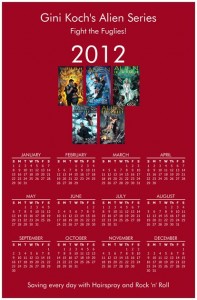After over a decade of involvement in various fan communities, I’ve noticed certain misconceptions about writing tie-ins (books based on other intellectual properties, such as movies, video games, and TV shows) that seem to repeat themselves on every message board and convention question and answer panel.
Plenty of fan fiction writers think it would be great to spend all day telling stories about their beloved characters and getting paid for it. The most junior mistake is to find addresses for people already involved in the franchise, and send them the fan fiction so they can see how good it is. Unfortunately, even the best fan fiction won’t get read-and not because the recipient is “mean” or even just too busy. For legal reasons, professionals working on an IP avoid reading fan fiction. Otherwise, they open themselves to lawsuits from fans claiming that ideas or concepts were “stolen” from fan works. True or not, these allegations require costly legal support and can delay production. For professionals, reading fan fiction isn’t worth the risk.
Intellectual property companies don’t go to fanfiction.net when they’re looking for a new writer for a tie-in novel. They go to published authors who are already writing in the genre and style they’re looking for, and ask if they’d be interested. They want to work with professionals: people who’ve already proven that they can produce a novel with both the quality and the appeal to be accepted for publication.
So, setting out with a dream to write tie-in fiction for a particular beloved franchise is a challenging prospect. You would first have to write an original novel, get it published, and then-through circumstances largely outside your control-wait in the hope that someone working for that franchise would invite you to write for them. The important quality for a fan is loving the franchise; the important quality for being a tie-in writer is being a professional writer. If you are working to be a professional writer anyway, tie-ins can provide good income and mass exposure; but you don’t know what jobs might come along. If all you want is to write about your favourite series/movie/comic for a living, think again.
Professional tie-in fiction isn’t fanfic.
In fan fiction, you’re free to do whatever you want. You can kill off the main character. You can break up canon couples and create new romances. You can introduce new story elements, such as magic, or time travel. You can make gay characters straight and straight characters gay. You can do crossovers with other series. You can cheerfully overlook any characters or storylines that don’t hold your interest. When you’re writing for your own entertainment, there are no restraints.
Professional tie-in fiction, on the other hand, is overseen by the intellectual property company who needs to approve everything you write. How much freedom you will have to tell your story will depend on many factors: how much pre-existing canon there is; how flexible that canon is; the tone, themes and setting of the franchise; the needs of other authors writing in the same franchise. Your freedom will also depend on whether the company has a particular idea in mind (ie. “write a novelization of our video game”) , a specific goal for the book (ie. “write a prequel for our movie to show how the characters met each other”), or something more open-ended (ie. “write a story about the Were-rats in the Shifting Breeds universe”-or perhaps even just “Write a Shifting Breeds story).” Companies know that killing off a main character in a tie-in novel can have a major effect on their fan base; it’s done rarely, and with careful thought, for a reason. Your “unrequited romance between the hero and the villain” might be your favourite daydream for the franchise, but unless it’s already part of canon, it’s unlikely that it would ever become sanctioned by the intellectual property owners. The company wants to create a tie-in novel that will cause as many fans as possible to buy it, enjoy it, and come back for more. It doesn’t want to publish a book just to cater to one person’s private fantasies-that’s what fan fiction is for.
Tie-in writing is hard work, often with tight deadlines, writing in a shared universe where the writer is only one of many contributors. Because of those tight deadlines and mandatory cooperation, intellectual property companies look for established writers with reputations for professionalism and teamwork; people they can count on to get their work in on time and done with the best interests of the franchise as a whole in mind.
For those of you who think Star Wars would be better without Luke Skywalker, or if the prequel movies never happened, or if Leia and Lando got together, or if the Millennium Falcon took on the Starship Enterprise, or if Darth Vader were a dragon-rejoice! Fan fiction is, and always will be, yours. For those of you who would like to write tie-in fiction as part of your career-keep working on that original novel.


 facebook page or your own blog, or tweet the details of our contest. If you do any of these things, leave the details (including your web address and twitter handle) with your comment. There’s a maximum of 4 entries per person (one for each method of entry). Leave a comment telling us in 25 words or less who your favorite book character is and why. See our examples below.
facebook page or your own blog, or tweet the details of our contest. If you do any of these things, leave the details (including your web address and twitter handle) with your comment. There’s a maximum of 4 entries per person (one for each method of entry). Leave a comment telling us in 25 words or less who your favorite book character is and why. See our examples below.